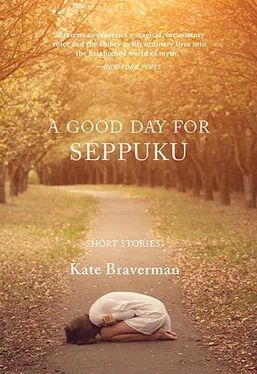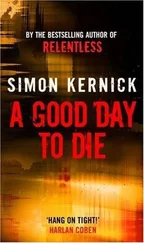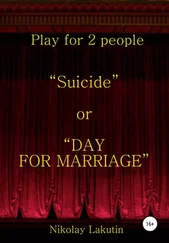He jumps the creek to ridges of brazen scarlet and vermillion maples. They’re a battalion of renegades. He calls that Revolution Hill. Low slopes are intricate displays of leaves turning cinnamon, cordovan and oxblood. They remind him of the leather and high- ceilinged rooms at the college. He names this path Library Road.
Some maples look dipped in wine, burgundy and sherry. A good chemist could take the separate elements of autumn and distill them. The first chemists were alchemists. A superior chemist could put them in a bottle and drink it. That’s the hazard of maples and the lure of clarets and grenadine.
Oaks are sturdier. Their strewn leaves resemble buckskin, pelts, leather patches and gourds. He could gather them, and devise clothing and weapons. Or he could graft them on for hands. Tommy is certain he could survive winter.
The forest is an engine, a wind-fueled orchestra. Oaks are anchors and provide a steady rhythm. On the banks of 5 Eagle Creek, the maples are younger and subdued. When dry, their leaves rustle like tinny castanets. That’s Gypsy Ridge. The west-facing slopes go brown and brittle early. He can step on them for percussion. He calls this section Death Row.
He knows where he is and rarely encounters anyone. It’s his forest and he can orchestrate it.
Tommy was angry. The week began with a rare family discussion about his request to join Boy Scouts. He needed twelve dollars for dues and a uniform. His father said no.
Tommy offers to clean cages in the vet clinic. He’ll wash the storeroom floor.
Betadine and iodine leak from ten-gallon jars and fall in streaks like stalled creeks polluted with rust. Pink antibiotic drips thick like spit-out bubblegum. The floor is encrusted with what fell and lodged between the layers — pens and keys and business cards, cotton balls, swabs, gauze and coins are permanently laminated. Each year the county health department cites the clinic for multiple violations.
“That’s my Sargasso Sea,” his father said. “I like it as it is.”
Tommy rarely has a specific desire that he can articulate. He doesn’t want a Walkman, a Star Wars video or a guitar. But Boy Scouts is an urgent necessity. He must make fire from sticks and the movement of his wrists. He wants to learn Morse code and how to send smoke signals. For an astronomy badge, he’ll identify constellations and the Pleiades meteor shower in August when the troop camps out for a week at Hamilton Mountain.
Tommy doesn’t know how to say he longs for companionship. He can’t recognize his loneliness, how remote and distant he is, how stranded. He’s sympathetic to the moon, barren, pock-marked and futile. Rogue asteroids excite him. They’re fearless delinquents without rules. When satellites lose orbit, and are condemned to fall back to earth as incinerated pieces, he mourns their fiery extinction. He has no idea why.
During their formal family discussions, he talks in a rush about knots, lassos and securing boats at docks. The principles of aerodynamics are demonstrated by archery. He mentions badges for cooking and house repair. He’s nervous and passionate and senses defeat. He wants to dig for arrowheads and fossils in amber, and recognize archeological sites from Indians and wagon trains.
Tommy is trying to create a dialect in which he will be fluent. Perhaps it’s a language of ropes, flints, canvas tents and sticks that transform into flames. He’s small like his mother, with thin wrists and ankles, and doesn’t play sports with his father. He isn’t chosen for teams or after-school football. He is trying to survive.
“Your thoughts are so primitive and generic, I can’t process them,” his mother says, taking off her apron.
After dinner his mother goes to clay class or a lecture at the college. Woman’s Circle meets once a week and she’s taking another sewing class. Democratic Club is mandatory. The county has never voted democratic, not even for Roosevelt. Of course the cause is futile. That’s why it’s so important, his mother tells them. She’s president and has to open the door and start the coffee pot. She has the only set of keys.
“Uniforms and saluting lead to Idi Amin, the shithead Shah of Iran, and that bastard in Iraq,” his father says. He stands up. “I can’t support that.”
Tommy feels betrayed. He rides his bike to the college, barely noticing the rain. No one is outside, not on Lincoln Street or Maple Ridge Road. Campus is deserted. As usual, he reads the plaque on the marble statue of Galileo. Then he rides home in the dark.
It’s the cusp between fall and winter and he’s uneasy. The zone of transition is like a frontier where there are no rules and the unpredictable is constant. Wind rips random paths through the forest and maples’ leaves fall in the shape of broken hearts, mouths, and twisted upended shells. The sun thins as if strained through a colander. Tommy knows the architecture of November. It’s an anatomy of edges and pebbles, gravel-mouthed thunderstorms, and abandoned nests finches left. In the planet’s shift, he has the sensation he may fall off the world.
He’s surprised to find Captain waiting for him. “What have you got in that backpack?” he asks.
Tommy takes out his compass, flashlight, buck knife, matchbooks, and paperback copy of On the Road that Professor McCarty gave him. He doesn’t like it and isn’t reading it.
He places the items on the table near his father. He doesn’t have a canteen. He drinks from 5 Hawk Creek below a colossal maple. It’s one of the oldest in the forest and invariably turns a bold magenta. Its leaves stay on as if somehow attached past the first freeze. The bark is thick and complex, a sort of Braille he tries to read with his hands. There are epics beneath his fingers, formulas and footnotes. Puncture such a tree and the history of the world pours out. Cut it down and time stops. He calls the place where he drinks Cistern of the Sage.
Under the lamplight his tools are a paltry assembly. They’re squalid and starkly inadequate.
Captain examines the contents of his backpack. He picks them up one at a time and evaluates them.
“A substandard Cro-Magnon could rule the planet with this gear,” his father decides. Then he opens a statistics book.
Tommy can’t translate his emotions into intelligible sentences. He recognizes his father is wrong, but he can’t go further, can’t say You’re an unreasonable, selfish man . He believes he’ll someday navigate back through time, return to precisely this moment, and say, You’re a bully and narcissist. Give me the money . He doesn’t yet know that what is lost cannot be retrieved.
His mother is gone the next day. After school he finds a recipe card taped to the refrigerator. Under the list of necessary ingredients for banana bread, she’s written Going to New Mexico.
“Dad, we have to call the sheriff,” Tommy says. It’s past dusk when he rides to the clinic, holding the recipe card in his hand. “File a missing person report.”
“Jimbo’s an asshole. Give it a few days,” his father replies. “She’ll come back when she wants.”
His father hasn’t spoken to Sheriff Jim Murphy since the problem with the PETA brigade from Pittsburgh. Tommy chanced to be at the clinic when the delegation arrived. He watched six women get out of a van and enter the clinic.
They have a list of requests. They want his father to board stray dogs and cats in his storeroom until they’re adopted. ‘Rescued’ is the word they use.
His father is flabbergasted. They’re inundated with strays as it is. At spring break, students from the Con drop off kittens and puppies on the clinic grounds. They throw cats out of car windows, and kick puppies from cars. Sometimes they drag dogs to their front lawn in Wood’s End.
Читать дальше






![Джон Харгрейв - Mind Hacking [How to Change Your Mind for Good in 21 Days]](/books/404192/dzhon-hargrejv-mind-hacking-how-to-change-your-min-thumb.webp)





